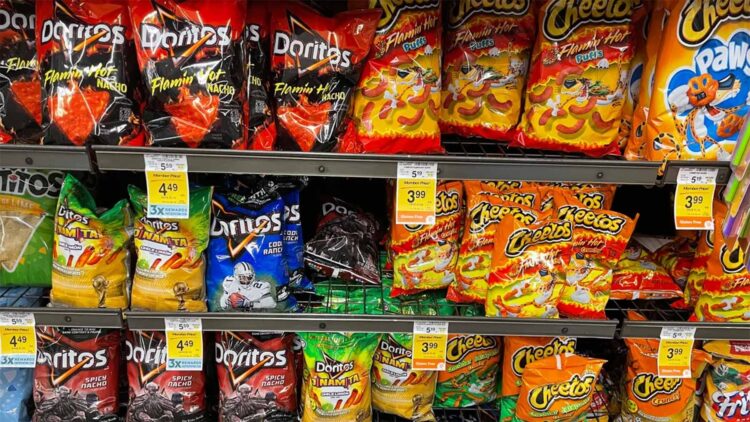Recipes are changing in the United States. Later this year, a few of your favorite snacks and drinks might taste a little different. Both Coca-Cola and PepsiCo are quietly reworking recipes they’ve relied on for decades, and not because they want to, but because health regulators and public pressure are leaving them little choice.
For Coca-Cola, the change is straightforward: switching from corn syrup to cane sugar in its American sodas, matching what it already sells abroad. Fans who’ve long said Coke tastes better outside the U.S. may finally get the version they’ve been asking for.
PepsiCo’s shift goes further. By the end of the year, Cheetos and Doritos will lose artificial colors and flavors. The company also says it will start using more avocado and olive oil in its recipes. At the same time, it’s doubling down on brands like Sun Chips, which it already markets as a healthier option.
Behind these moves is growing scrutiny from the FDA, the MAHA movement, and officials like Robert F. Kennedy Jr., who has made food safety one of his loudest talking points. His main target: synthetic additives such as Red Dye No. 3 and the rising health risks tied to ultraprocessed foods.
Why Coca-Cola and PepsiCo are deciding to change recipes now
For years, American soda drinkers have asked why Coke tastes different abroad. The answer has always been the sweetener. Overseas, it’s cane sugar; in the U.S., it’s been high-fructose corn syrup for a long time. But with the FDA hinting at tighter rules, Coca-Cola is finally making the change.
PepsiCo’s challenge is bigger because its snack brands, like Doritos, Cheetos, even Sun Chips are iconic, but they’re also exactly the kind of ultraprocessed foods critics point to when talking about health risks. Reformulating them without changing their signature taste is risky. But leaning on ingredients like olive oil and avocado oil helps the company tell a new story: same flavor, cleaner recipe.
The role of Kennedy and MAHA
This isn’t just coming out of nowhere. Earlier this year, the FDA presented plans to gradually eliminate petrochemical-based dyes in favor of natural ones. That move energized the MAHA movement, which has been pushing for cleaner standards in packaged food.
Then there’s Robert F. Kennedy Jr. As Secretary of Health and Human Services, he’s been blunt about his concerns. He called war on additives like Red Dye No. 3, and talked about their behavioral influence and potential health issues, and he criticized big companies like Coca-Cola and PepsiCo for dragging their feet.
This week, Kennedy said he will partner with the U.S. Department of Agriculture to design a labeling system for ultraprocessed foods. The idea is that they will be giving shoppers more transparency and more power when making choices at the supermarket.
You might not even notice the changes
For consumers, the changes will likely feel subtle. Coke may taste a little closer to the version sold abroad. A bag of Doritos might look less neon-bright. Sun Chips could get more attention on store shelves as PepsiCo highlights its “better-for-you” brands.
But behind those small tweaks is a much bigger story: America’s most famous food and drink companies are being pushed to evolve. We still have to wait and see if the products are really becoming healthier or if this whole thing just helps with marketing. But the conversation around dyes, oils, and ultraprocessed foods is just starting and isn’t going away.
For the first time in decades, the giants of soda and snacks are being forced to change. And this may just be the beginning of a new chapter in the way Americans eat.

